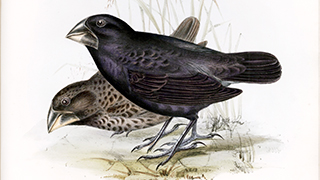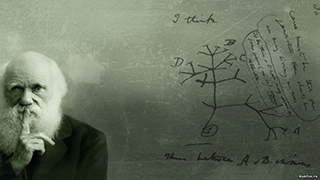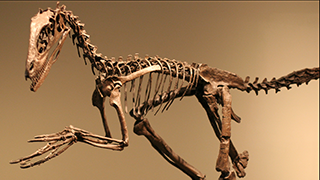MENU
The Electronic Scholarly Publishing Project: Providing world-wide, free access to classic scientific papers and other scholarly materials, since 1993.
More About: ESP | OUR CONTENT | THIS WEBSITE | WHAT'S NEW | WHAT'S HOT
ESP Content
The Electronic Scholarly Publishing Project grew out of an early, personal effort to share some documents with colleagues. The original site was just a personal subdirectory on the website of the Genome Data Base (the gene mapping database of the Human Genome Project, or HGP).
The first paper shared on the personal website, was Hardy's total contribution to biology — a short letter-to-the-editor in which he explained the basic concept of population genetics after noting: I should have expected the very simple point which I wish to make to have been familiar to biologists. However, some remarks of Mr. Udny Yule, to which Mr. R. C. Punnett has called my attention, suggest that it may still be worth making.
This was popular and resulted in requests for more papers. At the time, the web was young and journal publishers had not yet created websites with back issues and content available on line, so our original plan was to create — either by scanning or by wholly new typesetting — digital documents of classic, out-of-copyright literature and make them freely available to the scholarly community.
The ELSI (ethical, legal, and social implications) component of the Human Genome project had, as one of its goals, making the findings of the HGP accessible to the general public. Using this as an entry point, we applied for and received HGP funding to create a web site intended to provide access to the literature of classical genetics.
Our rationale was that the methods of molecular genetics could seem almost magical to those without training in biology, whereas the methods of classical genetics were conceptually accessible to anyone. A basic understanding of classical genetics could make it easier for non-biologists to appreciate and understand the results of the HGP.
ESP Early Content
In 1997, with the new funding in hand, we obtained the ESP.ORG domain name and The Electronic Scholarly Publishing Project was born. Early on, we had only eleven papers in our collection, as shown below in this copy of the original website, captured by the Wayback Machine (the Internet Archive project) in early 1998.
Now the site has hundreds of documents in its holdings and provides thousands of links to documents maintained on publisher websites and elsewhere.
ESP Quick Facts
ESP Origins
In the early 1990's, Robert Robbins was a faculty member at Johns Hopkins, where he directed the informatics core of GDB — the human gene-mapping database of the international human genome project. To share papers with colleagues around the world, he set up a small paper-sharing section on his personal web page. This small project evolved into The Electronic Scholarly Publishing Project.
ESP Support
In 1995, Robbins became the VP/IT of the Fred Hutchinson Cancer Research Center in Seattle, WA. Soon after arriving in Seattle, Robbins secured funding, through the ELSI component of the US Human Genome Project, to create the original ESP.ORG web site, with the formal goal of providing free, world-wide access to the literature of classical genetics.
ESP Rationale
Although the methods of molecular biology can seem almost magical to the uninitiated, the original techniques of classical genetics are readily appreciated by one and all: cross individuals that differ in some inherited trait, collect all of the progeny, score their attributes, and propose mechanisms to explain the patterns of inheritance observed.
ESP Goal
In reading the early works of classical genetics, one is drawn, almost inexorably, into ever more complex models, until molecular explanations begin to seem both necessary and natural. At that point, the tools for understanding genome research are at hand. Assisting readers reach this point was the original goal of The Electronic Scholarly Publishing Project.
ESP Usage
Usage of the site grew rapidly and has remained high. Faculty began to use the site for their assigned readings. Other on-line publishers, ranging from The New York Times to Nature referenced ESP materials in their own publications. Nobel laureates (e.g., Joshua Lederberg) regularly used the site and even wrote to suggest changes and improvements.
ESP Content
When the site began, no journals were making their early content available in digital format. As a result, ESP was obliged to digitize classic literature before it could be made available. For many important papers — such as Mendel's original paper or the first genetic map — ESP had to produce entirely new typeset versions of the works, if they were to be available in a high-quality format.
ESP Help
Early support from the DOE component of the Human Genome Project was critically important for getting the ESP project on a firm foundation. Since that funding ended (nearly 20 years ago), the project has been operated as a purely volunteer effort. Anyone wishing to assist in these efforts should send an email to Robbins.
ESP Plans
With the development of methods for adding typeset side notes to PDF files, the ESP project now plans to add annotated versions of some classical papers to its holdings. We also plan to add new reference and pedagogical material. We have already started providing regularly updated, comprehensive bibliographies to the ESP.ORG site.
ESP Picks from Around the Web (updated 28 JUL 2024 )
Old Science

Weird Science

Treating Disease with Fecal Transplantation
Fossils of miniature humans (hobbits) discovered in Indonesia
Paleontology

Dinosaur tail, complete with feathers, found preserved in amber.
Astronomy

Mysterious fast radio burst (FRB) detected in the distant universe.
Big Data & Informatics

Big Data: Buzzword or Big Deal?
Hacking the genome: Identifying anonymized human subjects using publicly available data.